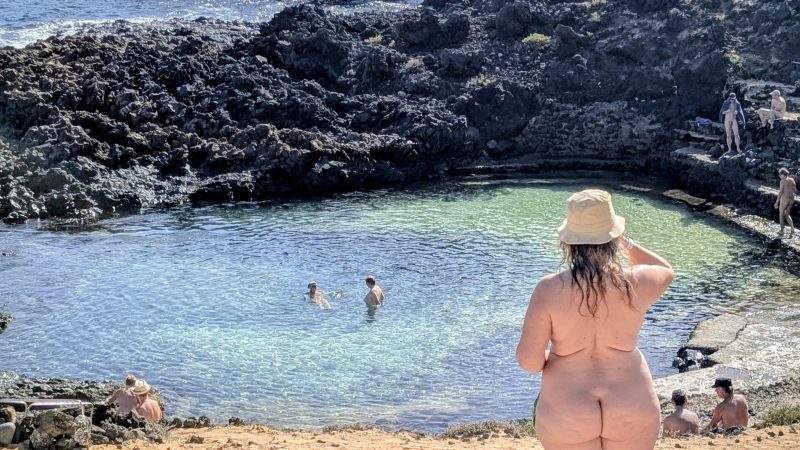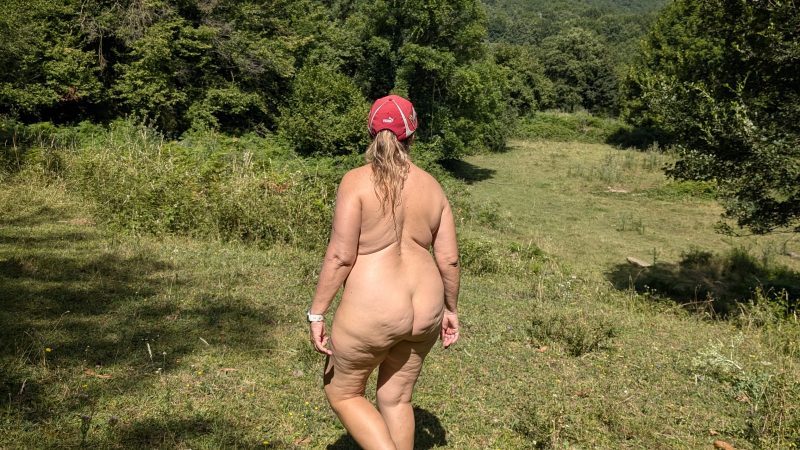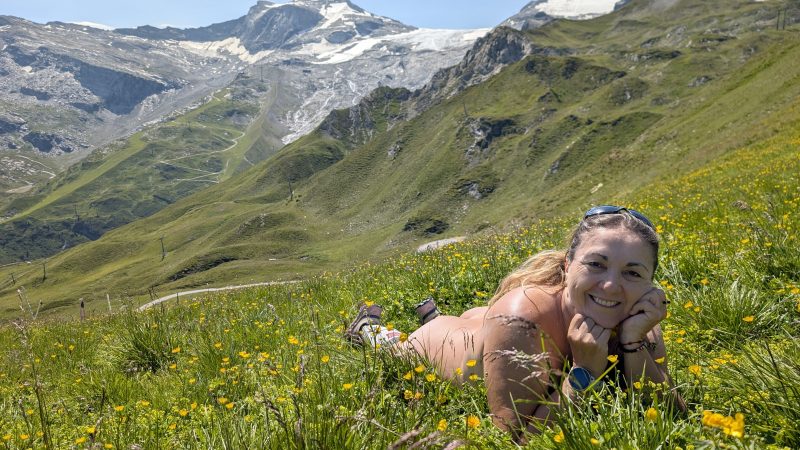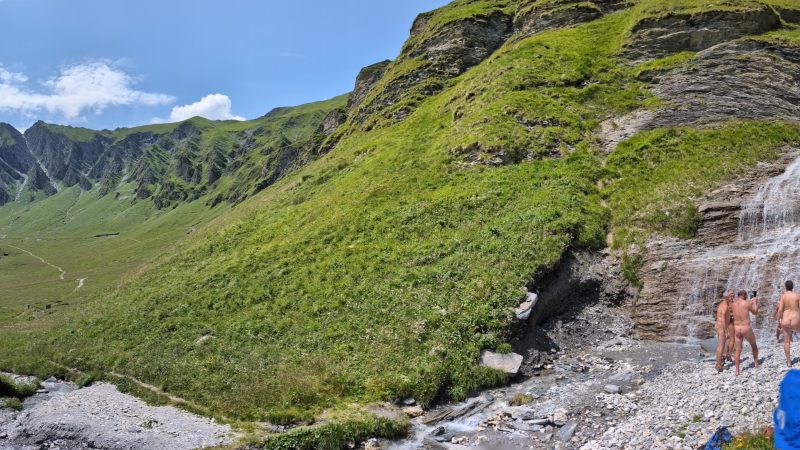Body Acceptance, the Passage of Time, and Nudism as a Tool for Liberation
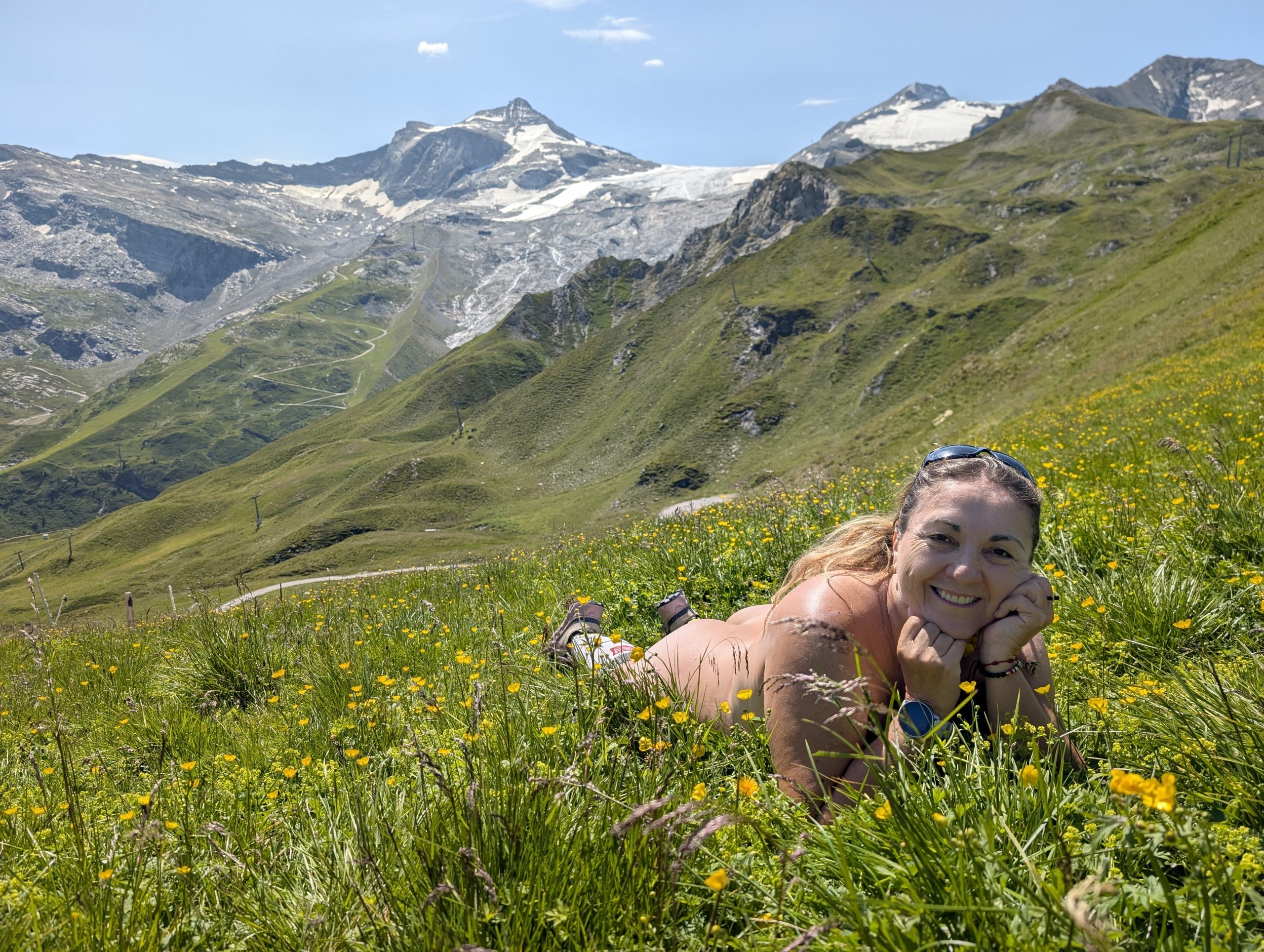
Accepting one’s own body and the passage of time is a personal and often complex journey in a society that bombards us with unrealistic beauty ideals and a cult of eternal youth. However, philosophies and practices exist that offer a path towards self-acceptance and freedom from these pressures, among which nudism emerges as a powerful tool for self-reconciliation.
Body acceptance is a fundamental pillar of emotional well-being. Throughout life, the body changes, transforms, and tells the story of our experiences. Aging is a natural and inevitable process that brings with it wrinkles, gray hair, and a new physical form. Nevertheless, a fear of aging, known as gerascophobia, has been culturally instilled, leading us to reject these changes rather than embrace them as just another stage of existence.
This difficulty in accepting the aging body is exacerbated by negative stereotypes that associate old age with deterioration and a loss of value, affecting self-image and potentially leading to a lower quality of life. Women, in particular, often face a double penalty: for being women and for aging, feeling the pressure to hide the signs of the passage of time.
Nudism: Beyond Just Nudity
Far from being a mere practice of being without clothes, nudism, or naturism, is a philosophy of life that promotes respect for oneself, for others, and for nature. One of its most transformative benefits is precisely the promotion of body acceptance.
By practicing nudism people are exposed to a real diversity of bodies: of all ages, shapes, and sizes. This exposure has a profound psychological impact:
- Normalization of body diversity: In a nudist environment, the beauty standards imposed by society fade away. One becomes aware that perfection is an illusion and that all bodies, with their unique characteristics, are natural and valid. This experience helps to understand that features like cellulite, stretch marks, scars, or aging bodies are not defects, but part of the human condition.
- Reduction of self-judgment: Seeing others comfortable in their own skin reduces the tendency for self-criticism. Shared nudity fosters an atmosphere of equality and mutual acceptance that facilitates self-acceptance. Studies and experts suggest that this practice reduces stress and boosts self-esteem.
- Reconnection with the body: Without the distraction and barriers of clothing, a greater connection with one’s own body and with nature occurs. Feeling the sun, the air, and the water directly on the skin can generate a deep sense of freedom and well-being, helping to appreciate the body for its sensations and functions, rather than its appearance.
Nudism and the Acceptance of Aging
In the context of the passage of time, nudism offers a space where the aging body is not only accepted but is simply one among many in its diversity. Wrinkles, sagging skin, and gray hair are integrated into the human landscape for what they are: signs of a life lived.
By interacting with people of all generations in a state of nudity, negative stereotypes about old age are broken down. One can appreciate the beauty in all stages of life, understanding that the aging body is still a vital body, capable of enjoyment and of being in harmony with its surroundings.
Ultimately, the path to accepting one’s body and the passage of time requires a change in perspective. Nudism presents itself as a practical and liberating way to achieve this, by creating an environment that challenges oppressive social norms and invites us to celebrate our bodies as they are, at every moment of our existence. It is an invitation to shed not only clothes but also prejudices and insecurities in order to live a more authentic and fulfilling life.

